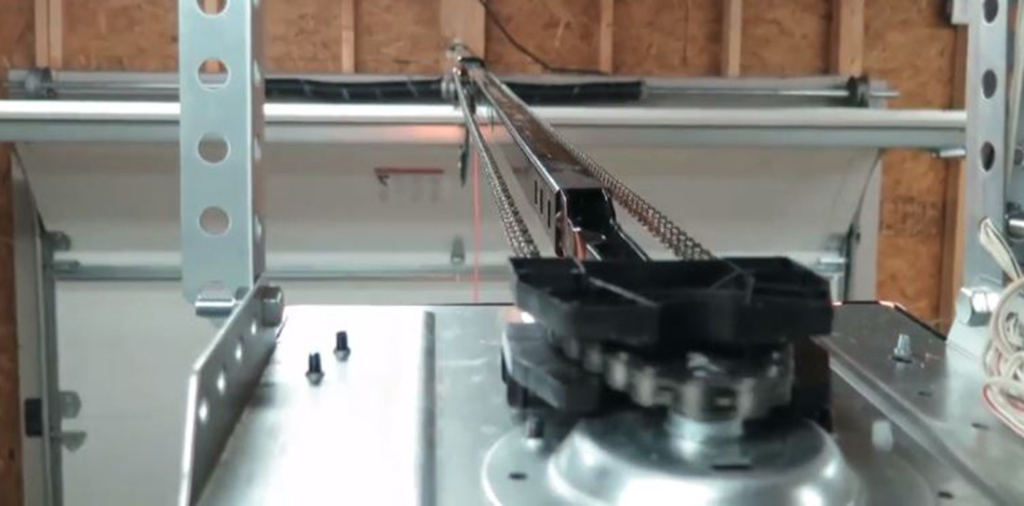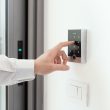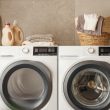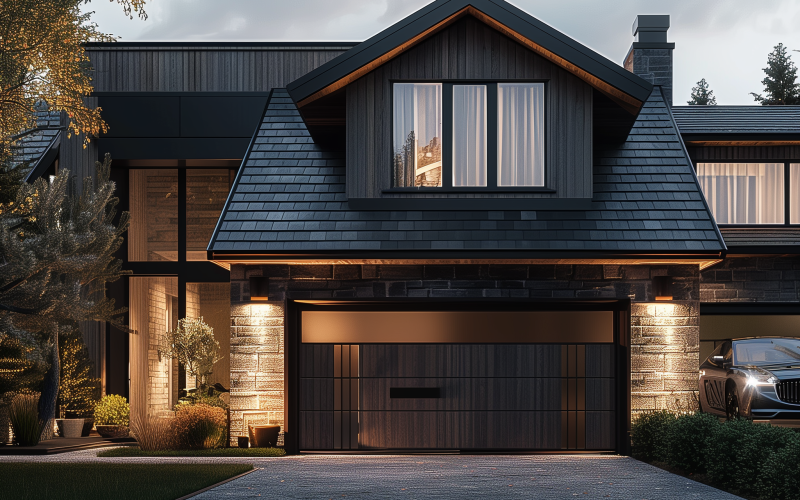Buying a garage door opener can be a significant investment for your home in Canada. It’s essential to choose the right one that suits your needs, considering factors such as climate, security, and convenience. Here’s a comprehensive guide to help you make an informed decision:
Understand Your Needs
- Evaluate your garage door size, weight, and material. Some openers are better suited for heavier or larger doors.
- Consider your budget and desired features such as remote access, battery backup, and smart home integration.
Types of Garage Door Openers

Chain-Drive Openers
Chain-drive openers use a metal chain to raise and lower the garage door. They are among the most common and affordable types of openers.
Pros
- Cost-effective option.
- Suitable for heavy garage doors.
- Reliable performance over time.
Cons
- Can be noisy during operation, which may be a concern if the garage is close to living spaces.
- Requires periodic maintenance, such as lubrication of the chain.
Suitability
- Ideal for detached garages or situations where noise is not a significant concern.

Belt-Drive Openers
Belt-drive openers operate similarly to chain-drive models but use a reinforced rubber belt instead of a chain. This results in quieter operation.
Pros
- Significantly quieter than chain-drive openers, making them suitable for attached garages or living spaces above the garage.
- Low maintenance compared to chain drives.
- Smooth operation with fewer vibrations.
Cons
- Slightly more expensive than chain-drive openers.
- The rubber belt may wear out over time and need replacement.
Suitability
- Ideal for homeowners who prioritize quiet operation and have attached garages or living spaces close to the garage.

Screw-Drive Openers
Screw-drive openers use a threaded steel rod to lift and lower the garage door. The motor rotates the rod, which moves the trolley along the track.
Pros
- Durable and require minimal maintenance.
- Suitable for various garage door sizes and weights.
- Reliable performance in most climates, including Quebec’s weather conditions.
Cons
- Can be noisier than belt-drive openers but quieter than chain-drive models.
- May not be as smooth in operation as belt drives.
Suitability
- Ideal for homeowners seeking durability and reliability with less maintenance compared to chain or belt drives.

Direct-Drive Openers
Direct-drive openers have the motor attached directly to the garage door itself, eliminating the need for belts, chains, or screws.
Pros
- Extremely quiet operation, as there are fewer moving parts.
- Minimal maintenance required.
- Smooth and reliable performance.
Cons
- Typically more expensive upfront.
- Limited availability compared to other types of openers.
Suitability
- Ideal for homeowners willing to invest in a premium, quiet garage door opener with minimal maintenance requirements.
Smart Openers
Smart garage door openers are equipped with connectivity features that allow remote operation, scheduling, and monitoring via smartphone apps or smart home platforms.
Pros
- Convenient remote access from anywhere with internet connectivity.
- Integration with smart home ecosystems for seamless automation.
- Enhanced security features such as real-time alerts and activity logs.
Cons
- Generally more expensive than traditional openers.
- Requires a stable internet connection for full functionality.
Suitability
- Ideal for tech-savvy homeowners who prioritize convenience, security, and remote accessibility.
Understanding the nuances of each type of garage door opener will help you make an informed decision based on your specific needs, preferences, and budget. Consider factors such as noise level, maintenance requirements, durability, and additional features to choose the best option for your home in Canada.
Suggested reading: 7 Types of Garage Door Openers And What You Need to Know About Each
Consider Climate Factors
Climate factors play a significant role in the selection and performance of a garage door opener, particularly in nordic countries like Canada, which experience diverse weather conditions. Here’s a deeper dive into climate considerations when choosing a garage door opener:
Extreme Temperatures
- Canada’s climate is characterized by cold winters and sometimes hot and humid summers. Extreme temperatures can affect the operation and longevity of a garage door opener.
- In winter, sub-zero temperatures can impact the lubrication and movement of mechanical components, potentially leading to stiffness or malfunctions.
- Look for garage door openers with cold-resistant lubricants and materials that can withstand freezing temperatures without compromising performance.
Moisture and Humidity
- Canada experiences moderate to high humidity levels, especially during the summer months. Moisture can lead to rust, corrosion, and electrical issues in garage door openers.
- Choose openers with corrosion-resistant materials such as stainless steel or aluminum to prevent rust and deterioration in humid environments.
- Consider installing a dehumidifier in the garage to minimize moisture buildup and protect sensitive electronic components of the opener.
Snow and Ice Accumulation:
- Heavy snowfall and ice accumulation are common during Quebec’s winter months, posing challenges for garage door operation.
- Ensure that the garage door opener is powerful enough to lift the weight of a snow-covered door without straining the motor or causing damage.
- Look for models with robust construction and powerful motors designed to handle heavy loads and operate smoothly in cold weather conditions.
Insulation and Energy Efficiency
- Proper insulation is essential for maintaining comfortable temperatures inside the garage and minimizing energy loss.
- Choose garage door openers with insulated housing and weather-stripping to prevent heat loss during winter and keep the garage cooler in summer.
- Insulated garage door openers can also help reduce energy consumption by maintaining more stable indoor temperatures and reducing the workload on heating and cooling systems.
Power Outages
- Severe weather events such as snowstorms or ice storms can cause power outages, leaving homeowners without electricity to operate their garage door opener.
- Consider investing in a garage door opener with a battery backup system that allows operation during power outages. This ensures continued functionality and access to the garage even during emergencies.
Severe Weather Resistance
- Canada occasionally experiences severe weather events such as high winds, hailstorms, and heavy rainfall.
- Choose garage door openers with durable construction and reinforced components to withstand the impact of severe weather and minimize the risk of damage.
- Consider installing additional bracing or reinforcement for the garage door to enhance its resilience against strong winds and storms.
Routine Maintenance
- Regular maintenance is crucial for ensuring the optimal performance and longevity of a garage door opener, especially in climates with extreme weather conditions.
- Perform routine inspections, lubricate moving parts, and replace worn components as needed to prevent malfunctions and prolong the lifespan of the opener.
- Consider scheduling professional maintenance services, particularly before the onset of winter, to address any issues and prepare the opener for cold weather conditions.
By considering these climate factors when choosing a garage door opener in Canada, homeowners can select a model that is well-suited to withstand the region’s challenging weather conditions, ensuring reliable operation and longevity throughout the year.
Safety Features
Certainly! Safety features are essential considerations when choosing a garage door opener to ensure the protection of people, pets, and property. Here’s a deeper dive into the key safety features to look for:
Auto-Reverse Mechanism
- One of the most critical safety features, an auto-reverse mechanism ensures that the garage door reverses its direction if it encounters an obstruction while closing.
- This feature prevents accidents and injuries by immediately stopping and reversing the door if it detects an object, person, or pet in the door’s path.
- Auto-reverse mechanisms typically use sensors or photoelectric eyes located near the bottom of the door to detect obstructions.
Motion Detection Sensors
- Motion detection sensors are designed to detect movement in the garage and can prevent the door from closing if motion is detected in the door’s path.
- These sensors provide an additional layer of safety, especially in situations where an obstruction may not be easily detected by the auto-reverse mechanism, such as small objects or pets.
Manual Release Mechanism
- In the event of a power outage or malfunction, a manual release mechanism allows the garage door to be operated manually.
- This feature ensures that homeowners can still open and close the garage door manually, even if the automatic opener is not functioning properly.
Rolling-Code Technology
- Rolling-code technology enhances the security of the garage door opener by generating a new access code each time the door is operated.
- This feature prevents unauthorized access by burglars attempting to intercept or replicate the door’s remote control signal.
Vacation Mode or Lockout Feature
- Some garage door openers come with a vacation mode or lockout feature that disables remote access to the opener for added security when homeowners are away for an extended period.
- This feature prevents unauthorized entry by disabling the remote control operation of the garage door opener until the homeowner returns and deactivates the lockout mode.
Illumination and Alert Systems
- Garage door openers may be equipped with illumination systems, such as built-in lights or motion-activated lighting, to improve visibility and safety in the garage.
- Alert systems, including audible alarms or visual indicators, can provide warnings before the door closes to alert anyone in the vicinity of the impending movement.
Secure Wall-Mounted Control Panel
- Wall-mounted control panels should be securely installed out of reach of children and pets to prevent accidental operation of the garage door.
- Some control panels feature security codes or locking mechanisms to prevent unauthorized access and tampering.
Sensitivity Adjustment Settings
- Many garage door openers allow users to adjust the sensitivity settings to customize the opener’s response to obstructions and ensure optimal safety.
- Sensitivity adjustment settings allow homeowners to fine-tune the opener’s sensitivity to prevent false detections while still providing reliable protection against obstructions.
Compliance with Safety Standards
- Ensure that the garage door opener complies with industry safety standards, such as those set by organizations like the Underwriters Laboratories (UL) or Canadian Standards Association (CSA).
- Look for certification labels or markings indicating compliance with safety standards to ensure that the opener meets rigorous safety requirements.
By prioritizing safety features when choosing a garage door opener, homeowners can create a secure environment for their families and minimize the risk of accidents or injuries associated with garage door operation. Investing in a garage door opener with robust safety features provides peace of mind and ensures the protection of people and property.
Energy Efficiency
- Choose an opener with energy-efficient features to minimize electricity consumption, such as LED lighting and standby mode options.
Installation and Maintenance
- While some homeowners may opt for DIY installation, professional installation ensures proper setup and functionality.
- Regular maintenance, such as lubricating moving parts and inspecting safety sensors, can prolong the lifespan of your garage door opener.
Legal Requirements
Legal requirements regarding garage door opener installation can vary depending on local building codes, zoning regulations, and homeowners’ association (HOA) rules. Here’s a deeper dive into the legal considerations you should keep in mind:
Building Codes and Regulations
- Municipalities in Canada may have specific building codes that dictate the installation and operation of garage door openers. These codes often include requirements for safety features, electrical wiring, and structural integrity.
- Building codes may specify the type of garage door opener allowed, safety features such as auto-reverse mechanisms, and minimum standards for installation and maintenance.
- It’s crucial to familiarize yourself with the building codes applicable to your area and ensure compliance when installing or replacing a garage door opener.
Permits and Inspections
- Depending on the scope of the installation or replacement project, you may need to obtain permits from your local building department before starting work on your garage door opener.
- Permits are typically required for significant modifications to the electrical system, structural changes, or installations that affect the safety of the property.
- After installation, your local building department may conduct inspections to ensure that the garage door opener complies with applicable codes and regulations.
Condominium or HOA Regulations
- If you live in a condominium or a community governed by a homeowners’ association (HOA), there may be additional regulations and guidelines regarding garage door opener installation.
- HOA rules may dictate the type, color, or design of garage door openers allowed within the community.
- Before purchasing or installing a garage door opener, review the CC&Rs (Covenants, Conditions, and Restrictions) or HOA bylaws to ensure compliance with community regulations.
Noise Restrictions
- Some municipalities may have noise ordinances that regulate the operation of mechanical equipment, including garage door openers.
- If you live in an area with noise restrictions, consider choosing a quieter garage door opener model, such as a belt-drive or direct-drive opener, to minimize noise pollution and avoid potential fines or complaints from neighbors.
Accessibility Requirements
- In Canada, accessibility standards may apply to garage door openers to ensure that individuals with disabilities can operate them safely and independently.
- Accessibility requirements may include features such as remote controls with large buttons, tactile indicators, and clear visual or audible signals to indicate door movement.
- When selecting a garage door opener, consider options that comply with accessibility standards to ensure inclusivity and compliance with legal requirements.
Professional Installation and Compliance
- Hiring a licensed and experienced contractor for garage door opener installation can help ensure compliance with legal requirements, building codes, and safety standards.
- Professional installers are familiar with local regulations and can ensure that the installation meets all applicable requirements.
- Additionally, professional installation may be necessary to maintain manufacturer warranties and ensure the proper functioning of the garage door opener.
By understanding and adhering to legal requirements related to garage door opener installation, you can ensure compliance with applicable regulations, promote safety, and avoid potential legal issues or penalties. It’s essential to research and consult with local authorities or professionals to ensure that your installation meets all necessary legal standards and requirements.
Warranty and Customer Support
- Look for products with reliable warranties and responsive customer support services. This ensures assistance in case of malfunctions or technical issues.
Read Reviews and Compare Prices
- Research different brands and models, read customer reviews, and compare prices from various retailers to find the best deal without compromising quality.
Finalize Your Purchase
- Once you’ve considered all factors and found the right garage door opener for your needs, make your purchase from a reputable retailer or authorized dealer.
Suggested Local Experts
- Montreal, Quebec: Premium Garage Doors
- Toronto, Ontario: Barmac Garage Doors
- Calgary, Alberta: Advantage Garage Doors
- Vancouver, British Columbia: Titan Garage Doors
By following these steps and considerations, you can confidently choose a garage door opener that enhances the security, convenience, and efficiency of your home. Remember to prioritize safety, durability, and energy efficiency to make a worthwhile investment.




